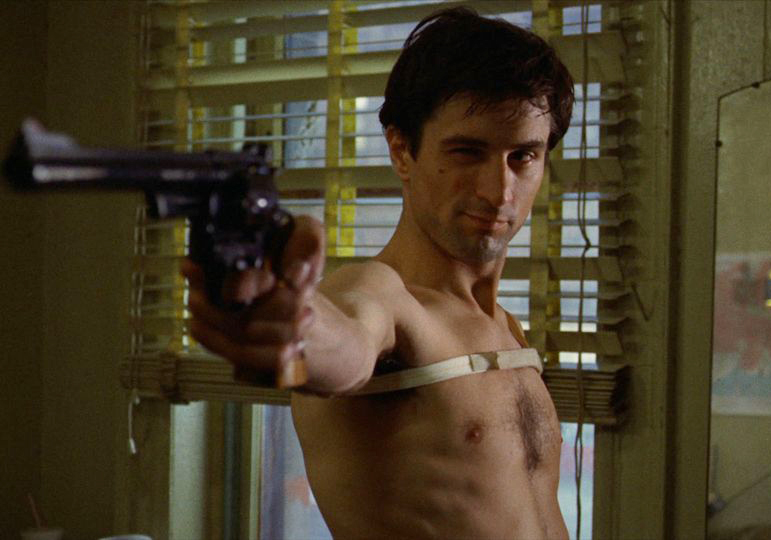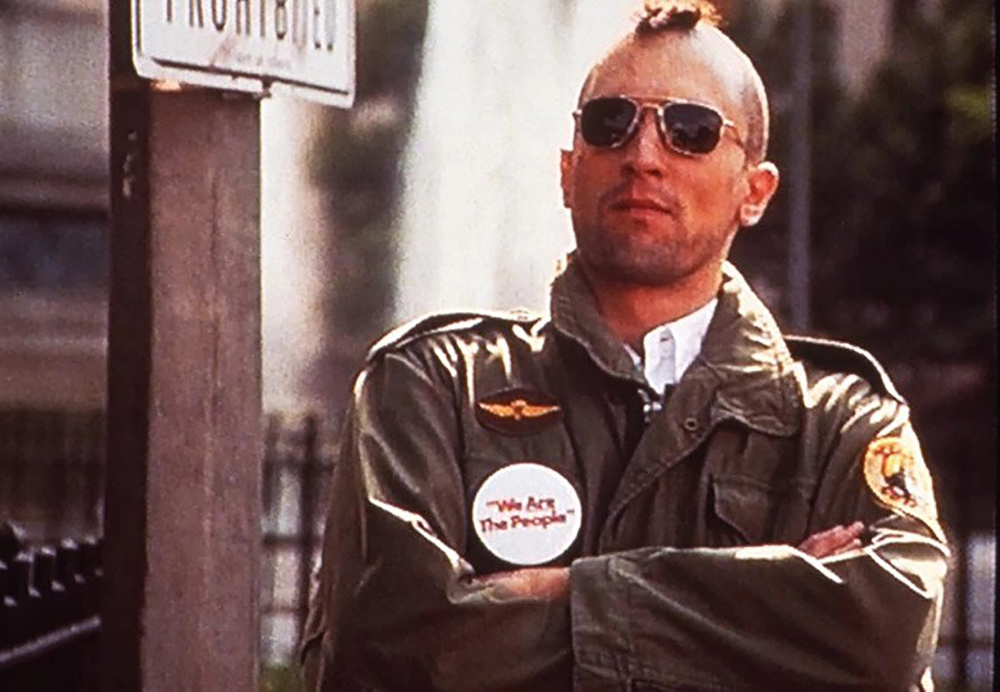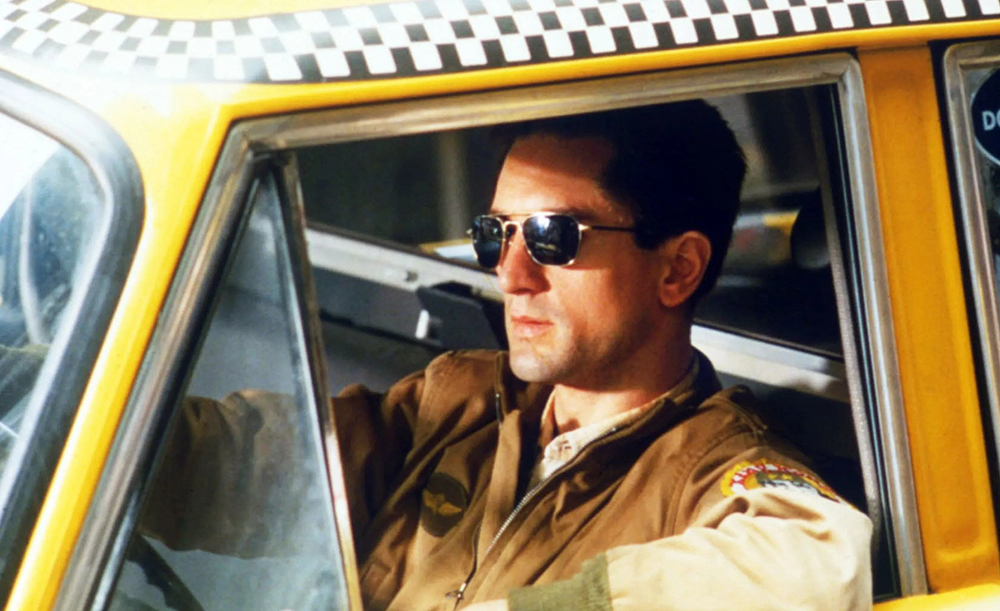The story revolves around Travis, a Vietnam veteran who suffers from insomnia, deciding to take the job as a taxi driver and roam around New York City. In this roaming, he observes the streets through the windshield of his taxi. In his viewing, he can only see the degradation of society in the form of humans. As he says in one of his monologues, they are nothing but ‘whores, skunk-pussies, buggers, fairies, dopers, junkies’, all sick and venal.
How Society is Fractured by One-Sided Views
Though inarguably there are these rough places—and one should have his angst against it—this monologue of Travis signifies his one-sided view of society. He can see the degradations but not the brighter sides. He only mentions the people who live in the dark in his monologues throughout the film but never about the other half living in the light. It is Travis’ own disturbing nihilistic worldview within his own subjective thinking that bothers him so much. That he complains of most.
In Travis’ worldview, there is no objectivity. He is so driven by his own philosophy that he can’t see otherwise. Travis is speaking about getting sick by visiting this meanness on the street, yet he steps into the same dark alleyways every night only to observe them and gets sicker. He complains about his loneliness by calling himself ‘god’s lonely man,’ yet he denies that the loneliness is due to his own self-inflicting behavior.
One of the dialogues in the film quotes a line from a famous Kris Kristofferson song, “The Pilgrim, Chapter 33;” “He is a prophet, he is a pusher, partly truth partly fiction, walking contradiction.” Travis is full of contradictions. In fact, he lives in his own world, which is made upon partly truth and partly fiction. It is a bubble where individual subjectivity is essential, not the actuality of events. It can be said he sees things the way he wants to see them. And by doing so, he cuts the ties of the outside world and lives within his own thoughts, often heard as monologues or diary entries in the film.

Travis’ View of the World is Really a View of Himself
In my opinion, Travis is an excellent representation of a post-modern hero. The idea of postmodernism is the rejection of the grand narrative, and the truth is based on subjectivity. In Travis’ world, he refuses to see the grand narrative. As a result, he preserves a fragmented reality and fills the gaps with his own imaginations.
He doesn’t know Betsy (Cybill Shepherd) until he takes her to the café, yet he assumes her loneliness and lies about Tom (Albert Brooks). Similarly, when he meets Iris (Jodie Foster), he lies about Sport (Harvey Keitel) speaking ill about her.
These contradictions from actuality make Travis unnerving and dangerous, as they are Travis’ own reflection on himself. His loathing for society is actually meant to be for him. But he is in constant denial of this monstrosity; he tries to justify his actions by imposing his ideology upon others. This makes him an alienated character living on the fringes of society, which is a culmination of the fragmented bitterness of the world around him. This is the truth in Travis’ perspective, and he submerges himself within it so that other forms of view are obscured in his world.

The Dangers of Living in a Bubble in Society
In the context of the post-modernity of the 21st Century, society can be referenced with Travis’ characteristics. As in “Taxi Driver,” Travis lives in his own bubble of reality. Every person in this age of the Internet and social media does the same. The algorithms show us whatever we want to see, which satisfies our point of view. Thus a reluctance to accept the real situations becomes predominant. And these narrowness of thoughts made with subjective assumptions leads to polarization. As a result, there are no middle views between the two extreme spectrums.
And most importantly, this vicious cycle is spreading like a contagious disease, yet we do nothing to stop it. As a result, fake news bends the narrative of a particular story away from facts, and various organizations spread hate-mongers with extremist thoughts and propaganda. With all these, people are becoming more and more isolated from facts, objectivity, truth, and themselves.
In my opinion, Travis is an excellent representation of a post-modern hero…”
In “Taxi Driver,” there is one Travis, but society is filled with many Travis in today’s context. And the bitter truth is there no easy steps are taken to remedy this disease. The constant contradictions and denials make things worse. All we are heading to is the final bloody showdown like in the movie. 46 years later, the problem only seems to get worse. At this crucial time in the modern world, Martin Scorsese’s “Taxi Driver” always reminds us how we are all stand on a ticking time bomb. Like Travis, this is waiting to explode and take us to our end.
Support the Site: Consider becoming a sponsor to unlock exclusive, member-only content and help support The Movie Buff!

